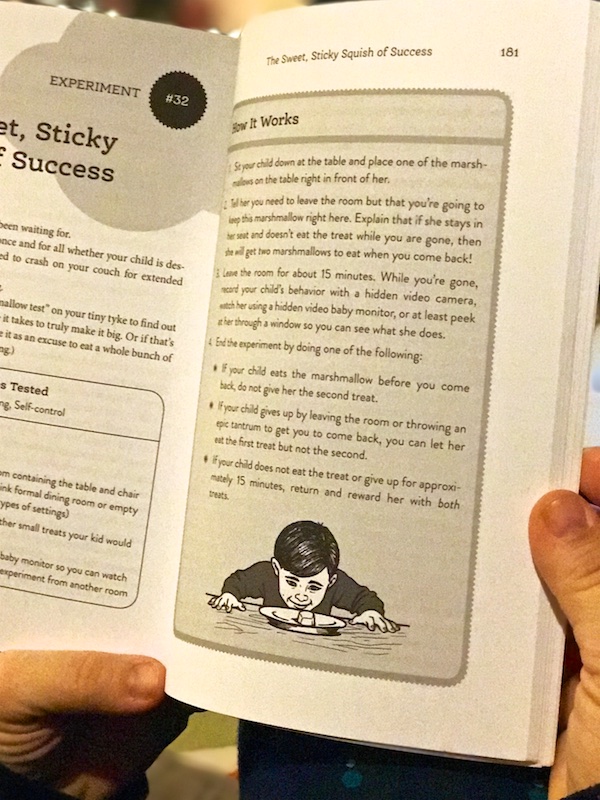
While scrolling through our Facebook feeds recently, an alarming headline from The Guardian caught our eye:
Belief in Santa could affect parent-child relationships, warns study
We responded the same way any thoughtful, concerned and loving parents (who have also been telling their kids to believe in Santa Claus their entire lives) would:
“Huh? No!”
“What have we done to our precious children?!”
“Our family is doomed! Doomed, I tell you!”
“AAAAAARRRRGGGHHHH!”
But then, after we calmed down for a second, we said:
“Wait, what kind of study are they talking about here? Where is the data to support this claim? How do we know if any of this is even real?”
So Developmental Psychologist Mom Amber took a deep breath, thoroughly read the article, and examined the sources it cited as well. Good thing she did, because as it turns out…
There was NO study.
Yes, you read that right. There was no study at all. The article was actually based on an essay published in The Lancet written by Christopher Boyle from University of Exeter and Kathy McKay from University of New England, Australia – two presumably well-meaning (yet, for the record, childless) scholars who were simply pondering the possible negative effects of perpetuating the Santa myth.
The distinction between a study based on experiments that produce observable scientific data, and an essay based on hypothetical guesses as to what may or may not be true, is a huge one. Because without a study, there’s absolutely no proof.
You see, everything we know in the field of child development has been substantiated by actual experiments done on actual kids. That’s why child development experts can be confident in their knowledge and advice about children. It’s also why we wrote a fun book of do-it-yourself experiments for parents to perform on their own kids at home. Because if you really want to learn how kids think and how best to raise them, doing experiments is the only way to go.
So when the authors – who conducted no experiments to support their article – make claims like, “There is potential for children to be harmed in these lies,” their concerns might just be as fictional as the man in red himself.
What does research actually say about the effect of lying to your kids?
Don’t get us wrong. There’s plenty of actual scientific research showing that trust is extremely important for kids. For example:
Kids learn better from trustworthy adults
Researchers from the University of Chicago and Harvard had two adults name objects for kids. One adult gave correct names for words the kids already knew (like “ball” for a ball), while the other adult gave unreliable information (like “flib” for the ball). When the kids were then shown a new object and told its name by each adult, they overwhelmingly chose to believe the adult who had been more reliable before.
Kids show better self-control for adults they trust

There’s a classic psychology experiment that makes kids choose between eating one marshmallow now, or waiting awhile so they can eat two marshmallows later. It’s supposed to show whether kids have good delay of gratification skills, which can predict things like higher SAT scores in their futures. But researchers from University of Rochester demonstrated that trust was an important factor in this task too.
In their study, some kids met a trustworthy experimenter who consistently delivered on her promises, and others met an untrustworthy experimenter who did not deliver on her promises. When kids then did the marshmallow test, the ones who had a reliable experimenter were much more likely to delay eating the marshmallow because they trusted that waiting for the bigger reward would actually pay off.
Notice that in these studies, there’s a comparison between a more reliable and a less reliable adult. But in the case of the Santa story, we’re all equally untrustworthy. When children ultimately learn the truth, they also realize that everyone in the world has been pretending together – it’s not that Mom and Dad lied because they’re bad parents.
So there’s no reason to believe that when your child finds out you’re lying about Santa she will also suddenly think you’re lying about everything else too. Kids are way too smart for that.
And besides, the above studies clearly demonstrate that your child has been paying attention to how reliable you are all along. By the time your children eventually find out about Santa, they will already know exactly how trustworthy you truly are.
So we think you should keep the Santa ruse going as long as possible.
Telling your kids the complete truth about Kris Kringle might ease your conscience a little bit, but it’s also a complete bummer – for everybody.
When your children stop believing in Santa, your family’s Christmas celebration will change – cherished customs like writing letters and putting out cookies and milk will be abandoned or done out of ritual rather than genuine belief. Pretty soon your child will tell siblings and friends, and before you know it some of the magic of Christmas will be lost. Although all of this is bound to happen with time, it would be a pity to bring it about prematurely.
In their essay, Boyle and McKay write that perhaps the Santa myth persists because “the harshness of real life requires the creation of something better, something to believe in, something to hope for in the future.”
We agree. So why would you want to rob your kids of that?




